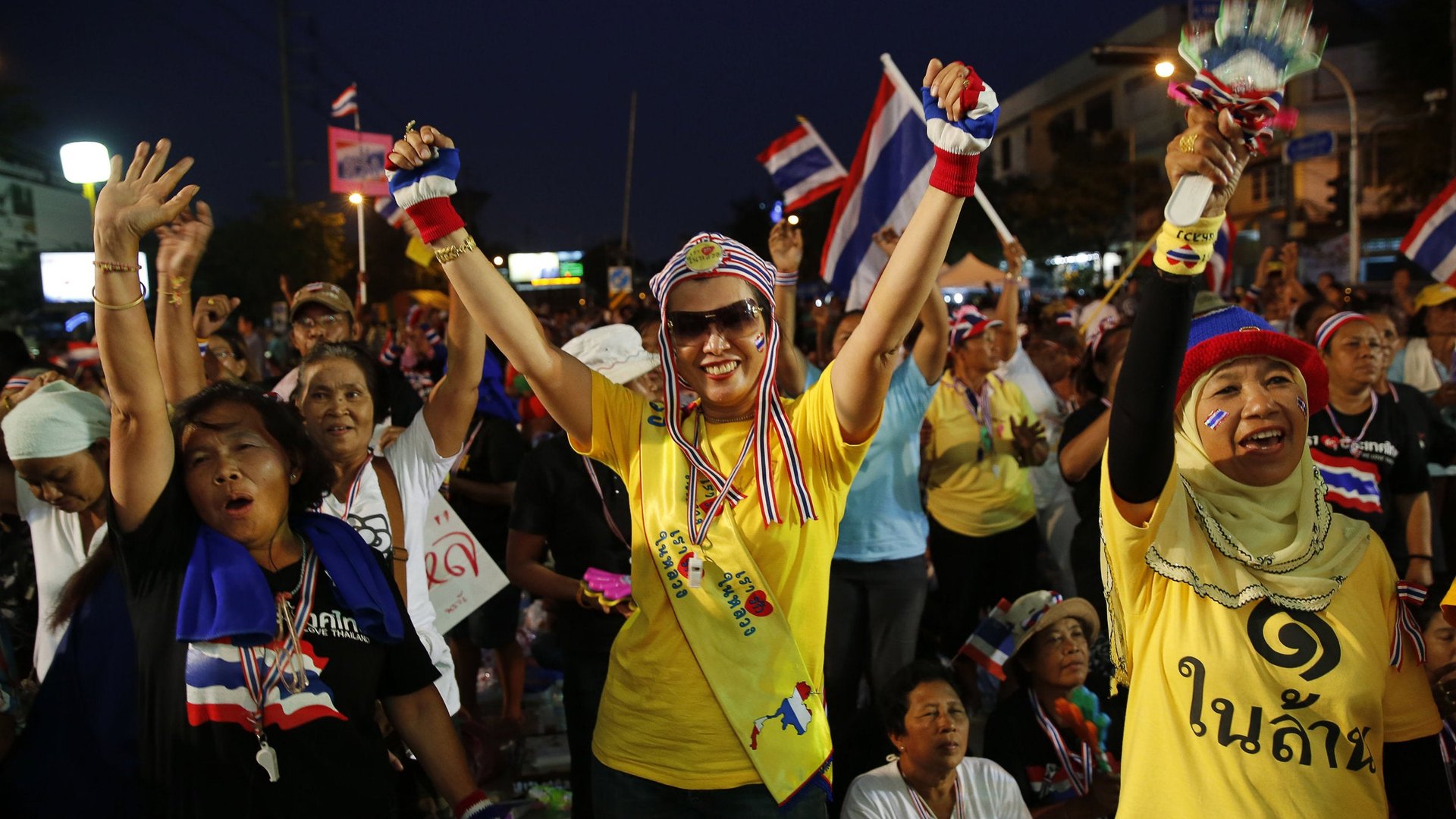“Teflon Thailand” is starting to lose tourists to its political chaos
It took a while, but Thailand’s political troubles are finally taking a bite out of its giant tourism sector, which along with the broader economy has been largely immune to the country’s periodic bouts of unrest. A million tourists—400,000 international and 600,000 domestic—have stayed home while the country has been wracked by massive street protests over the past several weeks, which coincided with the peak year-end tourism season.


It took a while, but Thailand’s political troubles are finally taking a bite out of its giant tourism sector, which along with the broader economy has been largely immune to the country’s periodic bouts of unrest. A million tourists—400,000 international and 600,000 domestic—have stayed home while the country has been wracked by massive street protests over the past several weeks, which coincided with the peak year-end tourism season.
Demonstrators calling for the ouster of Prime Minister Yingluck Shinawatra’s Pheu Thai party have been jamming the streets of Bangkok, the world’s top tourist destination, and there’s no sign of a resolution. Although the protests have turned violent at times—four people were killed and more than 100 injured on Dec. 1—tourists haven’t been endangered, only inconvenienced: Foreign governments advised travelers bound for the city’s airports to leave four hours early this week in case their routes were interrupted by protests.
Thailand’s Sports and Tourism Ministry reported that foreign arrivals at Bangkok’s two international airports fell by 15% the first week in December, compared with the same period last year. And the country’s Association of Domestic Travel reported that Thailand has missed out on 4 billion baht ($124.8 million) worth of tourist revenue since the end of November.
The civil unrest may not be the only reason tourists are staying away. China’s anti-scam crackdown on tours that offer cut-rate prices but pressure travelers into buying overpriced souvenirs and other goods has reduced inbound Chinese tourist volume by 30% into Bangkok’s Don Mueang airport in the last few weeks.
Despite the headwinds, Thailand is still on pace to have a record year for visits, which were up more than 20% on last year through the end of October. Just imagine how high the numbers might have been if protesters hadn’t decided that the most popular time of the year to travel to Thailand is also when they’d like to try to overthrow the government.